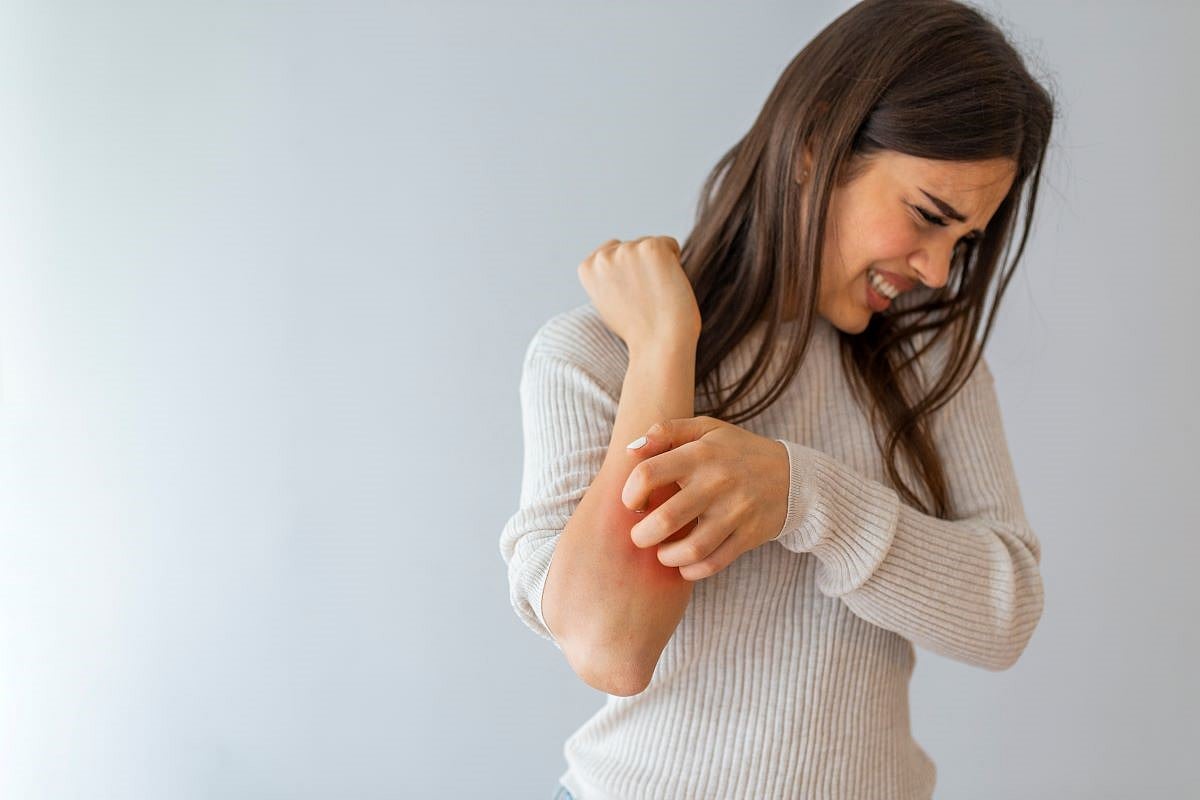Key predictors of suicidal ideation included younger age and obesity, as well as pruritus, skin pain, symptom intensity
By Elana Gotkine HealthDay Reporter
WEDNESDAY, Sept. 17, 2025 (HealthDay News) — Patients with atopic eczema (AE) have an increased risk for suicidal ideation (SI), according to a study presented at the European Academy of Dermatology and Venereology Congress 2025, held from Sept. 17 to 20 in Paris.
Julien Seneschal, M.D., Ph.D., from the CHU St. André in France, and colleagues surveyed 15,223 adults with AE and 7,968 controls without eczema across 27 countries to examine the prevalence of SI and its associated risk factors in the Scars of Life study. AE patients were classified by age of onset (adult-onset [EOA], 7,383; adolescent-onset [ETA], 4,965; and childhood-onset [ECA], 2,875).
The researchers found that SI was reported by 13.2 percent of AE patients compared with 8.5 percent of controls. No significant difference was seen in the prevalence of SI across AE subgroups, but all had elevated odds of SI versus controls (odds ratios, 1.56, 1.71, and 1.72 for EOA, ETA, and ECA, respectively). Key predictors were revealed on comparison of 2,010 SI cases with 13,213 non-SI cases, including younger age (odds ratio, 1.6 for younger than 30 years) and obesity (odds ratio, 1.29). Clinical risk factors included moderate-to-severe AE, pruritus, skin pain, and high symptom intensity (visual analog scale ≥7; odds ratios, 2.01, 1.3, 1.7, and 1.43, respectively). The SI group had higher stigmatization scores (26.01 ± 18.57 versus 17.12 ± 17.46).
“The results highlight that the effects of atopic eczema are more than skin deep, with suicidal thoughts representing a serious and frequent concern that is often overlooked by health care professionals,” coauthor Delphine Kerob, from La Roche Posay, said in statement. “We hope this study will help health care professionals better recognize and address these challenges, supporting patients’ overall well-being more effectively.”
Several authors disclosed ties to La Roche Posay. La Roche Posay Laboratoire Dermatologique conducted the Scars of Life study.
Copyright © 2025 HealthDay. All rights reserved.








